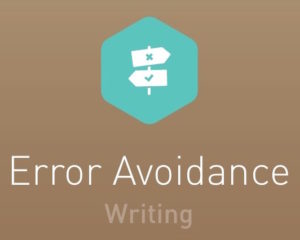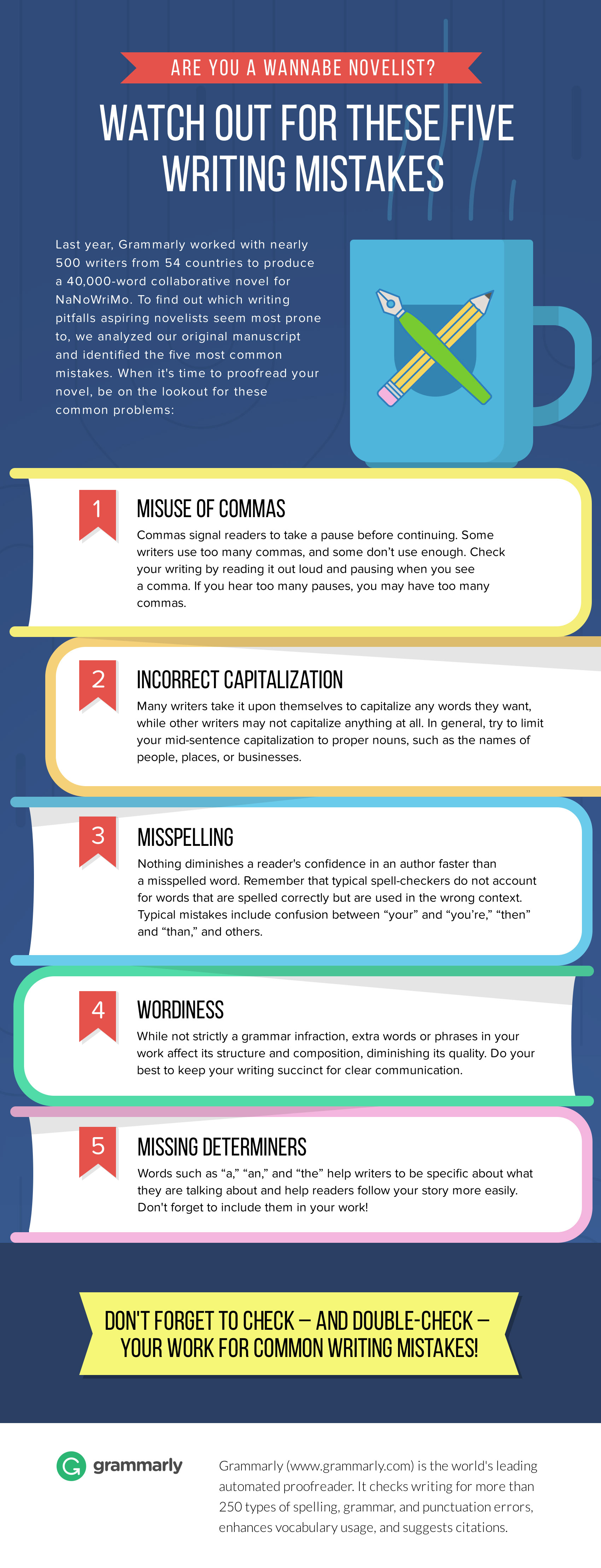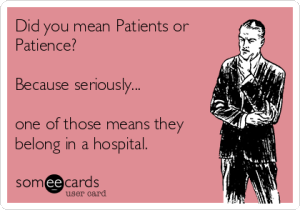by Naomi L. | September 21, 2016 | Blog, Creative Writing |
Every morning, as part of my daily routine, I exercise my mind with the Elevate – Brain Training app. I tend to do well in most of the Writing games, but there is one that almost always trips me up no matter how many times I play it: Error Avoidance. In this game, you’re provided with a series of sentences, each containing two words that can easily be confused, and your goal is to fill the gauges on the screen by correctly choosing whether to swap the words or leave them as they are. I’ve played rounds of this game that lasted several minutes because I kept either mixing up the words I didn’t know or second-guessing the ones I did. It seems even for native speakers, English is a difficult and confusing language!
I’ve featured a list of 25 sets of easily confused words on my blog before, but playing Error Avoidance has inspired me to share some more. So for your reference, here are 25 more sets of easily confused words to watch out for in your writing. Enjoy!
 1) Abjure / Adjure – To “abjure” is to solemnly renounce a belief, cause, or claim. To “adjure” is to urge or request someone solemnly or earnestly to do something.
1) Abjure / Adjure – To “abjure” is to solemnly renounce a belief, cause, or claim. To “adjure” is to urge or request someone solemnly or earnestly to do something.
2) Abstruse / Obtuse – To be “abstruse” is to be difficult to understand. To be “obtuse” is to be slow to understand.
3) Allude / Elude – To “allude” to something is to call attention to it indirectly. To “elude” is to evade or escape from danger.
4) Amoral / Immoral – To be “amoral” is to lack a moral sense. To be “immoral” is to not conform to accepted standards of morality.
5) Amuse / Bemuse – To “amuse” is to entertain someone. To “bemuse” is to bewilder or confuse someone.
6) Appraise / Apprise – To “appraise” something is to assess its value or quality. To “apprise” is to inform someone.
7) Credible / Creditable / Credulous – To be “credible” is to be convincing or able to be believed. To be “creditable” is to be worthy of acknowledgment. To be “credulous” is to be too ready or willing to believe things.
8) Elegy / Eulogy – An “elegy” is a reflective poem, typically a lament for the dead. A “eulogy” is a speech of praise about someone who has recently died.
9) Emigrate / Immigrate – To “emigrate” is to permanently leave one’s home country. To “immigrate” is to move to a new country.
10) Endemic / Epidemic – To be “endemic” is to be exclusive to a particular area. An “epidemic” is a widespread occurrence of a disease or phenomenon.
11) Entomology / Etymology – “Entomology” is the study of insects. “Etymology” is the study of the origin of words.
12) Envelop / Envelope – To “envelop” is to wrap up or surround something completely. An “envelope” is a paper container used for holding letters.
13) Existent / Extant – To be “existent” is to be real. To be “extant” is to still be present.
14) Flaunt / Flout – To “flaunt” is to show off. To “flout” is to openly disregard the rules.
15) Flounder / Founder – To “flounder” is to struggle helplessly. To “founder” is to sink or fail.
16) Forbear / Forebear – To “forbear” is to refrain from doing something. A “forebear” is an ancestor.
17) Imply / Infer – To “imply” is to strongly suggest something. To “infer” is to draw a conclusion based on evidence and logic.
18) Inequality / Inequity – “Inequality” is a lack of equality. “Inequity” is a lack of fairness or justice.
19) Moral / Morale – To be “moral” is to be concerned with principles of right and wrong. “Morale” is the confidence and enthusiasm of a person or group of people.
20) Perpetrate / Perpetuate – To “perpetrate” is to commit a crime. To “perpetuate” is to make something continue indefinitely.
21) Persecute / Prosecute – To “persecute” is to treat someone unfairly, typically because of race, religion, or political views. To “prosecute” is to institute legal proceedings against someone.
22) Rational / Rationale – To be “rational” is to be in accordance with reason or logic. “Rationale” is a set of reasons or a logical basis for a course of action.
23) Sallow / Shallow – To be “sallow” is to have an unhealthy yellow or pale complexion. To be “shallow” is to lack depth.
24) Sanguine / Saturnine – To be “sanguine” is to be positive and optimistic. To be “saturnine” is to be slow and gloomy.
25) Upmost / Utmost – To be “upmost” is to be the highest. To be “utmost” is to be the greatest or most extreme.
What about you? Are there any words you often get mixed up? What other pairs or sets of words would you add to this list?
by Naomi L. | August 10, 2016 | Blog, Creative Writing |
Fellow writers, let me ask you an important question: do you know how to use “affect” and “effect”? Now let me ask you another question: do you really know how to use “affect” and “effect”? If you hesitated at the second question, maybe it’s time to double check that particular area of your grammar knowledge. Luckily, Grammarly has you covered with their Affect vs. Effect quiz!
Confusing “affect” and “effect” is a common writing mistake; I’ve even briefly mentioned it before in my “25 words and phrases” post. To help clear some doubts about when to use which word, the folks at Grammarly have put together a blog post on the differences between “affect” and “effect”, complete with a quiz to test your knowledge! Why not give it a try right now? You may find you weren’t quite as affect-effect savvy as you thought! Good luck!
(Note: this quiz requires Javascript to work. If you can’t see it below, try following this link instead.)
So how did you do? Feel free to share your results in the comments, and be sure to check out Grammarly’s Affect vs. Effect post, especially if you didn’t score as well as you’d hoped on this quiz! Thanks for playing, and best of luck with your writing!
Today’s creative writing post is brought to you by Grammarly, the World’s Best Grammar Checker. For more information on Grammarly, visit https://www.grammarly.com/spell-check. Thanks for reading! Happy writing!
by Naomi L. | February 17, 2016 | Blog, Creative Writing |
Valentine’s Day has come and gone, but love goes on and on! If you celebrated this year, I hope you had a wonderful Valentine’s Day (or Singles Awareness Day; I’m not judging). If, however, you found yourself lonely and longing for a significant other with whom to share the day, then fear not! You may be surprised to learn that there’s one commonly underrated trait that can help you attract a partner: proper grammar!
Grammarly partnered with eHarmony to determine whether the writing skills displayed in people’s online dating profiles affect their chances of finding romance, and, in true Grammarly fashion, they summarized the results along with other online dating statistics in an infographic. So if you’re searching for love, be sure to consider these helpful grammar tips; they may save your chances at romance! Good luck!

Today’s creative writing post is brought to you by Grammarly, the World’s Best Grammar Checker. For more information on Grammarly, visit https://www.grammarly.com/grammar-check. Thanks for reading! Happy writing!
by Naomi L. | December 2, 2015 | Blog, Creative Writing |
So, did you finish that novel for National Novel Writing Month? If so, congratulations! Now that you have your 50,000 words written, it’s time for the next stage: editing your novel! To help get you started, Grammarly has put together a list of the five most common writing mistakes that came up in last year’s 40,000-word collaborative novel project. Be sure to watch for these mistakes while editing your NaNoWriMo novel! Enjoy!

Today’s creative writing post is brought to you by Grammarly, the World’s Best Grammar Checker. For more information on Grammarly, visit https://www.grammarly.com/grammar-check. Thanks for reading! Happy writing!
by Naomi L. | October 21, 2015 | Blog, Creative Writing |
It’s time for some more fun with confusing English words! So far, I’ve shared a list of 25 commonly confused words and phrases and a list of 20 English words that change in meaning when pronounced differently. Continuing on that line, today’s post focuses on homonyms (also called homophones): words that sound the same but that have different spellings and meanings. Homonyms are one of the most confusing types of words for new English speakers to learn, and while my 25 words post already includes some common examples such as “your/you’re” and “their/there/they’re”, there are still plenty of examples of like-sounding words that warrant some attention.
So just for fun, here are 20 sets of homonyms that you should look out for while reading or writing in English. Enjoy!
 1) Aisle/Isle – An “aisle” is a passage between shelves or rows of seats. An “isle” is a small island or peninsula.
1) Aisle/Isle – An “aisle” is a passage between shelves or rows of seats. An “isle” is a small island or peninsula.
2) Capital/Capitol – A “capital” is the most important city of a region. “Capital” also refers to wealth or uppercase letters. A “capitol” is a state legislature building in the United States, while the “Capitol” is the U.S. Congress building in Washington D.C.
3) Click/Clique – A “click” is a short, sharp sound. A “clique” is a small group of people with common interests.
4) Colonel/Kernel – A “colonel” is a high-ranking army officer. A “kernel” is a type of soft and edible seed.
5) Descent/Dissent – A “descent” is an act of moving downward. “Dissent” is an expression of opinions that vary from those previously or commonly held.
6) Discreet/Discrete – To be “discreet” is to be careful and circumspect. To be “discrete” is to be separate and distinct.
7) Exercise/Exorcise – To “exercise” is to practice physical activity to improve health and fitness. To “exorcise” is to drive out an evil spirit from a person or place.
8) Faint/Feint – To “faint” is to briefly lose consciousness. To “feint” is to make a false move meant to distract or deceive, typically during a fight.
9) Foul/Fowl – To be “foul” is to be offensive or wicked. A “fowl” is a domestic bird raised for its eggs and meat.
10) Hoarse/Horse – A “hoarse” voice is rough and harsh-sounding. A “horse” is a hoofed domesticated animal raised for riding, racing, and working.
11) Idle/Idol/Idyll – To be “idle” is to be inactive. An “idol” is someone or something that is greatly admired, or an image of a deity used as an object of worship. An “idyll” is an extremely idealized peaceful and picturesque scene.
12) Knot/Naught/Not – A “knot” is a fastening made by tying a piece of rope or string. “Naught” is zero or nothing. “Not” is an adverb used to form a negative.
13) Metal/Mettle – “Metal” is a solid material that is typically malleable, fusible, and ductile. “Mettle” is a person’s ability to face difficulties with spirit or resilience.
14) Miner/Minor – A “miner” is someone who works in a mine. A “minor” is someone who is underage. “Minor” also refers to what is lesser in significance.
15) Patience/Patients – “Patience” is the virtue of tolerance. “Patients” are people receiving medical treatment.
16) Peak/Peek/Pique – To “peak” is to reach the highest point. To “peek” is to look quickly and secretively. To “pique” someone’s interest or curiosity is to stimulate it.
17) Pore/Pour – To “pore” over reading materials is to be immersed in the study of them. To “pour” is to drop liquid from a container in a steady stream.
18) Principal/Principle – To be “principal” is to be the most significant. A “principal” is a person with the highest authority in an institution. A “principle” is a fundamental truth.
19) Stationary/Stationery – To be “stationary” is to be immobile. “Stationery” is specially printed writing paper.
20) Steal/Steel – To “steal” is to take someone else’s belongings without their permission. “Steel” is a sturdy alloy consisting of iron and carbon.
What are your thoughts on these homonyms? Any others you would add to this list?
 1) Abjure / Adjure – To “abjure” is to solemnly renounce a belief, cause, or claim. To “adjure” is to urge or request someone solemnly or earnestly to do something.
1) Abjure / Adjure – To “abjure” is to solemnly renounce a belief, cause, or claim. To “adjure” is to urge or request someone solemnly or earnestly to do something.




Recent Comments